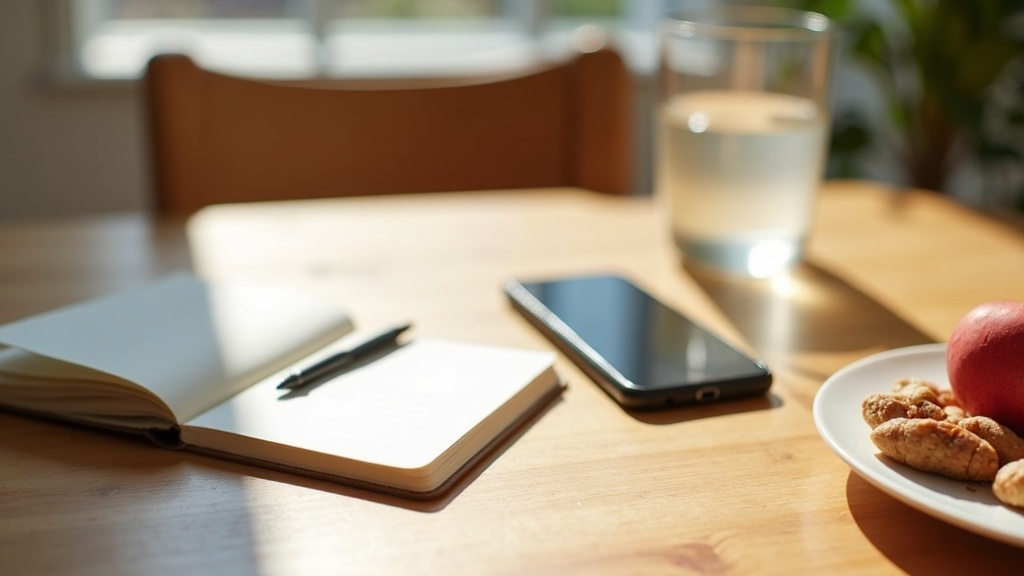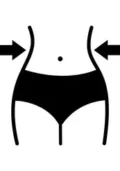If you’ve ever tried scrolling through social media with one hand and snacking with the other, you’re definitely not alone. Digital distractions seem to follow me everywhere, especially on weekends when time feels endless and temptations are all around. My phone and computer are always within reach, which makes it way too easy to overeat or skip out on building healthy habits. That’s where a weekend digital detox comes in, and believe me, it can truly give a boost to your weight loss goals.

Why a Weekend Digital Detox Works for Weight Loss
Taking a break from screens might not be the first thing that pops into your head when thinking about dropping pounds. But honestly, digital overload doesn’t just drain my energy—it often fires up cravings and leads to mindless eating. Research points out that too much screen time can affect mood, sleep, and the signals that tell us when we’re hungry or full. Even sneaking a quick look at emails or social feeds can cause stress or boredom, making snacking more likely.
When I put aside my phone, tablet, and laptop for just a couple of days, I become more present at meals and end up making better food choices. It’s about more than just what you eat—how and why you eat is just as important. Plus, cutting down on screen time usually means getting more rest, more movement, and doing activities that break that habit of eating just because I’m bored.
Getting Ready: What to Plan Before Starting Your Detox
Prepping for a screenfree weekend really helps if you want your digital detox to support your weight loss adventure instead of causing extra stress. Here are the steps I find super useful before unplugging:
- Let people know: A quick heads up to friends or family keeps them from wondering why you’ve gone quiet for a bit.
- Plan meals and snacks: Stock up on healthy foods so there’s less temptation to order takeout or hunt for junk food in the pantry.
- Schedule activities: Set up walks, hobby time, or even a workout class. Having these options ready fills up those times you’d usually spend scrolling.
- Set limits, not strict rules: If the idea of a total detox feels overwhelming, just pick certain hours each day to stay off screens.
These preparations make the whole process smoother and much more enjoyable because you won’t feel lost or stressed when the screens are off.
Starting Your Screenfree Weight Loss Weekend
Jumping into a digital detox might feel strange at first since screens are wrapped into almost everything we do. Here are some ways I make it much easier—and actually fun:
- Turn off nonessential devices: Physically put away your phone, tablet, and laptop. I hide mine in a drawer; seeing less of them really helps calm the urge to check.
- Do a meal check in: Before you eat, ask yourself if it’s hunger or boredom. No screens at meals make it easier to notice real hunger and when you’ve had enough.
- Swap screen time for other habits: Instead of grabbing my phone, I go for a walk, do some stretching, chill with music, or jot a few thoughts in a journal. These swaps actually help manage emotional cravings.
- Connect in real life: Hanging out face-to-face or having a phone call (the old-school way) helps fill the social gap, and there’s less temptation to snack out of loneliness.
Common Digital Detox Hurdles (and How to Handle Them)
I’ve run into a few classic challenges when trying to unplug—here’s how I handle some of the most common ones:
- Boredom: Taking breaks from screens can seem dull at first. Keeping a good book, a craft project, or having an outdoor plan lined up helps keep your mind (and hands) busy so eating out of boredom is less likely.
- Social pressure: Friends or coworkers may expect instant replies, or you might worry about missing out. Letting them know in advance or using an away message can give you peace of mind to log off.
- Food triggers from screens: When you’re not bombarded with endless food pics and ads, cravings settle down. If a random craving pops up, I drink water and usually, the urge passes.
- Persistent habits: It took me a while to stop reaching for my phone first thing every morning. Now I open the curtains straight away and enjoy a quick stretch instead.
Managing Cravings Without Screens
On screenfree weekends, I’m not tempted by eye-catching images of brownies or takeout, so I can pay real attention to what my body needs. Here are a few real-life strategies that make a difference:
- Keep a glass or bottle of water (or herbal tea) nearby at all times. Thirst often disguises itself as hunger.
- Sit at the table for meals, even if it’s just you. Doing this naturally slows down eating.
- Pause before eating and check in—is this hunger, tiredness, stress, or boredom?
Making the Most of Your Weekend Detox
Without screens grabbing your attention, there’s space to start new routines or rediscover activities you love. I like to take longer walks in nature or try out a new breakfast recipe. Both mindful eating and movement feel more natural with fewer distractions. Writing down your experiences (even short notes) helps you see your progress and builds momentum for future detox weekends.
Extra Tips for Getting Results From Your Digital Detox
Working in even just a couple of screenfree weekends per month can make a real difference, both in terms of weight loss and overall energy. More ways to get results include:
- Stay consistent: Setting aside regular detox times—even if it’s a few hours—breaks the pattern between endless scrolling and mindless snacking.
- Find accountability: Checking in with a friend who wants to take a break from screens too helps both of you stay honest. Supporting each other keeps things on track.
- Pair the detox with a fun activity: Cooking, dancing, gardening, or anything that keeps you busy means less snacking just for something to do.
- Ease back into screens: After detox weekends, try keeping some meals screenfree permanently for better results.
How a Digital Detox Supports Your Weight Loss Mindset
Taking breaks from screens lets you reset physically and mentally. I’ve noticed that I’m more focused, less anxious, and actually excited about making healthy choices. This mindset can help you remember the reasons you want to lose weight and encourage you to stick it out through tough moments.
Going techlite also helps with rest. Better sleep resets hormones related to hunger and energy—critical pieces of the weightloss adventure. Less screen light in the evening tells your body it’s time to wind down rather than stay alert for one more scroll.
Frequently Asked Questions
Here are a few things I often get asked about digital detoxing for weight loss:
Q: Do I have to go totally screenfree to see the benefits?
A: Not at all. Even just unplugging around mealtimes or before sleep makes a positive difference. Begin with small steps and do more as it feels right.
Q: Will this really help me control cravings?
A: Absolutely. Once you cut out the constant food ads and photos, you’ll spot that you snack less by habit and more only when you need it. Mindful eating makes a huge difference.
Q: What if emergencies come up and I need my phone?
A: I keep mine on silent in a separate room but allow calls from select people to come through—so it’s there for real needs, but I’m not glued to it all day.
Best Habits to Pair With Your Detox for Even Better Results
Detoxing from screens works best when teamed up with healthy routines. My top picks:
- Prepping meals on Friday night, so healthy food is always ready to go
- Trying new movement routines—like stretching, walking, or yoga—without screens
- Spending a few moments outdoors each morning to wake up in a natural way
- Journaling your “weekend wins” to keep track of steady progress and stay motivated
If you’re looking to make things even smoother, natural remedies or supplements may help curb cravings or give a gentle energy kick. Sites like EliteWomenSlim.com can help if you want to track down natural solutions to include in your weight loss plan.
Adding regular screenfree time, especially on weekends, keeps you mindful, brings you closer to real hunger cues, and builds momentum for lasting weight loss. Each attempt feels easier and more rewarding, and you may be surprised at how much lighter—both mentally and physically—you feel after just a couple of weekends of unplugging and paying attention.
